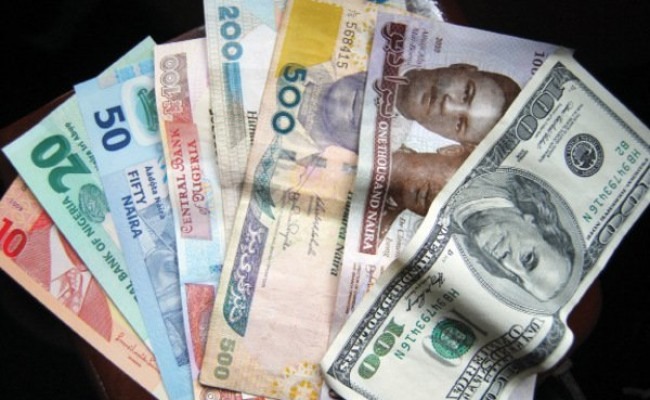Naira Falls: How Nigerians Are Coping with the Currency Depreciation
As the Naira continues its downward trend, reaching an all-time low of N1,740 per dollar in the parallel market, many Nigerians are left grappling with the effects. Over the past year, the Naira has depreciated by over 70% in the unofficial market, impacting everyday expenses and business costs for citizens.
To shed light on this pressing issue, we spoke with market traders, economists, and everyday Nigerians to understand what’s driving the currency’s fall and what lies ahead.
Join our WhatsApp ChannelRising Demand, Low Supply: The Core of Naira’s Struggle
Currency traders attribute the Naira’s continued fall to the significant demand for dollars, especially from importers, which the official market cannot meet. “The depreciation of the Naira is because many businesses need dollars to buy products from abroad,” said Mr. Liasu Moshood, a black market currency dealer in Lagos. “They’re sourcing dollars from us because the banks and even Bureau De Changes can’t meet these demands.”
Mr. Idris Daud, another trader, highlighted that the festive season is adding further pressure. “With many organizations preparing for December, demand is high. Some are restocking to ensure they have products to sell before year-end, not knowing how much worse the rate could get,” Daud explained. “I foresee the dollar hitting N1,750 this month and N1,800 by the end of the year.”
According to experts, limited foreign exchange inflow has significantly contributed to the currency’s depreciation. As the supply of dollars diminishes, access to foreign exchange becomes more challenging, pushing the value of the Naira down further. Nigeria’s status as an oil-producing nation has previously provided a buffer in the foreign exchange market. However, low oil production rates mean lower dollar inflows, placing a strain on the Naira.
Government and CBN Policies in Focus
The Central Bank of Nigeria (CBN) and the government have responded differently to the Naira’s current struggle. During the recent Monetary Policy Committee meeting, CBN Governor Yemi Cardoso emphasized the impact of the Federal Account Allocation Committee (FAAC) releases on the demand for foreign exchange. Cardoso noted, “We’ve observed a strong link between FAAC disbursements and increased liquidity in the banking system, which directly impacts the exchange rates. Our focus is now on monitoring these disbursements closely.”
While the CBN attributes much of the issue to demand pressures, the Finance Minister, Wale Edun, believes the main issue is supply. Edun, speaking at a World Bank Group meeting, stressed, “The key to stabilizing the Naira is increasing oil production. As an oil-producing country, we can solve foreign exchange shortages by boosting our oil output.” According to Edun, better supply would ease the demand pressures and likely stabilize the exchange rate.
These differences highlight the challenges the government faces in aligning its fiscal and monetary policies.
Importers, Small Businesses, and Nigerians Feel the Impact
The Naira’s fall is not only a financial concern but also a real challenge for Nigerians across the country. For small business owners and importers, sourcing goods from abroad has become a balancing act. Chukwuka Amadi, a small
READ ALSO: Nigerian Laments As Naira Falls By 769% Against Canadian Dollar In 10 Years
electronics importer, explains, “I import most of my products from China, and with this rate, my costs are almost double what they were last year. The price increase will fall on my customers, but I risk losing them if it becomes too expensive.”
Similarly, Adeola Adebayo, who operates a small clothing business, shares her struggles with the rising costs of materials. “With the Naira falling, it’s hard to price anything fairly. Last month I bought fabric for N500,000 that would have cost N250,000 just a few months ago,” Adebayo says. “People are no longer buying as much, and I don’t know how long I can continue.”
On a broader scale, the Naira’s depreciation affects all Nigerians as the cost of essential goods—many of which are imported—soars. From food items to basic household goods, consumers are feeling the weight of the high dollar exchange rate. “We can’t keep up,” said James Adah, a resident in Ajao Estate. “My grocery bill is twice what it was last year. It’s just too much.”
Experts Call for Strategic Interventions
Some economists argue that both demand and supply issues must be addressed to prevent further depreciation. Dr. Kunle Adetola, an economist, believes the government’s oil-centric approach is insufficient. “While increasing oil production will help in the short term, we need broader diversification. Encouraging more export businesses and reducing import dependency are critical,” he explains. “Relying only on oil production is risky, as it exposes us to fluctuations in global oil prices.”
The CBN’s introduction of an Automated FX Trading model, expected to launch in December, is also generating interest. The system aims to increase transparency in the foreign exchange market by moving away from the over-the-counter approach. “A more transparent system could potentially curb speculative practices and improve stability,” Adetola adds. “But it’s a temporary fix. We need sustainable policies.”
What Lies Ahead for the Naira?
The outlook for the Naira remains uncertain. While some analysts believe the CBN’s planned interventions may provide a temporary cushion, others argue that without significant structural changes, the currency could continue to face pressure. Foreign exchange dealers anticipate that unless the supply constraints are resolved, the Naira’s value could drop further, especially if demand remains high.
As the year draws to a close, Nigerians are bracing for potential challenges with the exchange rate likely to hit N1,800 by December. Whether government policies and CBN interventions can reverse this trend remains to be seen.
“Nigerians are very resilient,” says Adetola. “But at some point, we need stronger policies that support growth from within. This crisis could be a turning point, pushing us toward long-term solutions for currency stability.”
With more challenges on the horizon, one thing remains clear: the Naira’s depreciation is affecting everyone, and the journey to a stable currency may be a long one.
Emmanuel Ochayi is a journalist. He is a graduate of the University of Lagos, School of first choice and the nations pride. Emmanuel is keen on exploring writing angles in different areas, including Business, climate change, politics, Education, and others.



















Follow Us